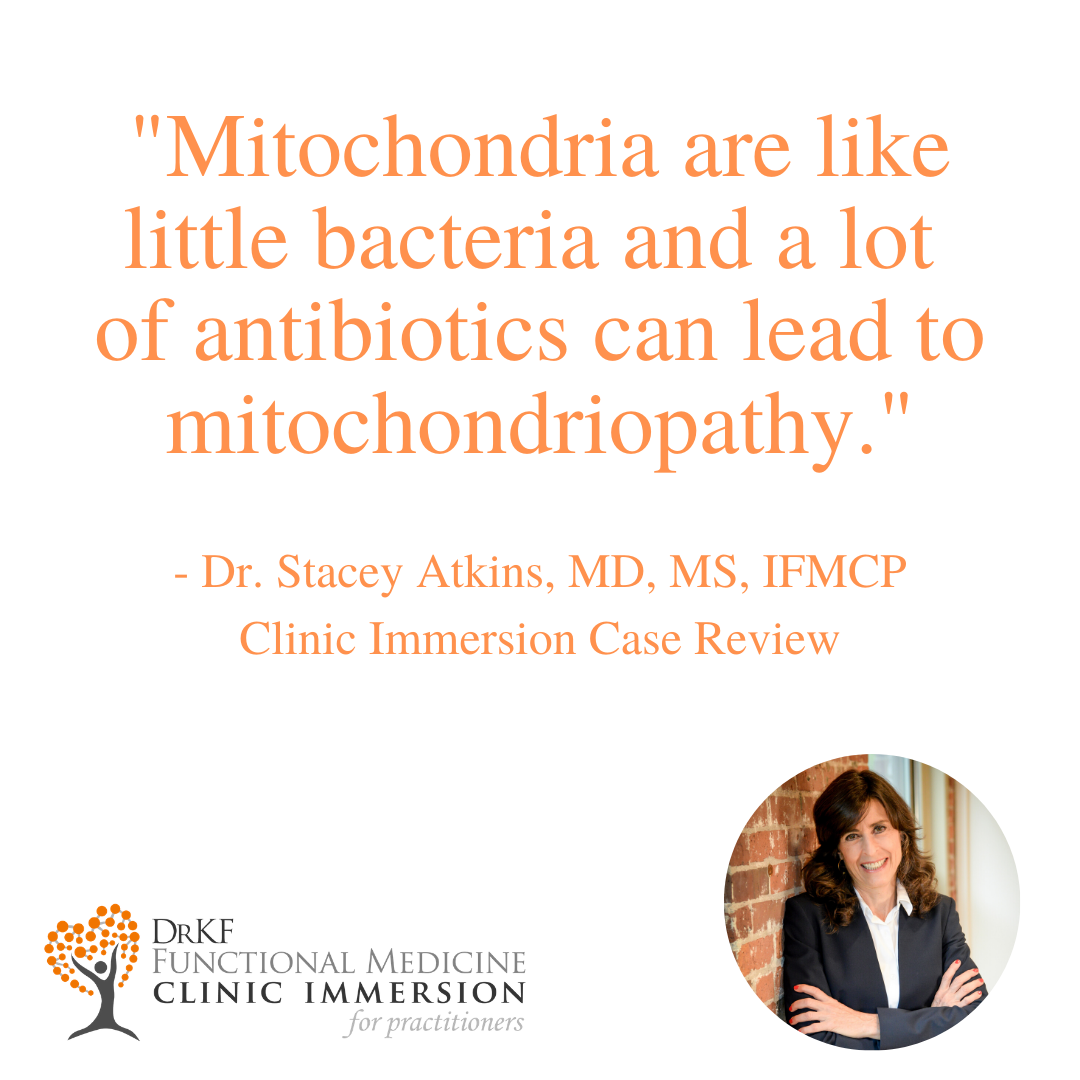Antibiotics can lead to Mitochondropathy

Mitochondria may be best recognized for their role in cellular energy production, but they’re also the main source of reactive oxygen species (ROS), which can contribute to inflammation in the body. In properly functioning cells, the energy-producing processes are tightly controlled and regulated.
According to the endosymbiotic theory, mitochondria originated from aerobic bacteria, and it’s thought that the use of antibiotics can target mitochondria, similar to their action in bacteria [1]. Certain types of antibiotics have been shown to induce ROS production in the cell, which can lead to DNA damage [1]. Damage to the ability of pathways that produce energy caused by nuclear DNA can result in different types of mitochondrial diseases [3]. It may even be that the oxidative stress and related cellular damage induced by bactericidal antibiotics may underlie many of the adverse side effects associated with these antibiotics [2].
Of course, there are times when antibiotics are necessary, so how can we protect and support healthy mitochondria during and after antibiotics? Think antioxidant-rich food sources and supplemental support!
- Antioxidant-rich foods such as berries, cacao, plums, and other fruits and vegetables
- N-acetyl-L-cysteine (NAC)
- Vitamin C
- Vitamin E
- Cysteine (glutathione precursor, can also be found in protein-rich foods)
References:
- https://www.ncbi.nlm.nih.gov/pmc/articles/PMC3760005/
- https://www.ncbi.nlm.nih.gov/pubmed/15009163
- https://www.ncbi.nlm.nih.gov/pmc/articles/PMC3952318/
Interested in joining the conversation and finding your tribe of like-minded clinicians?
Learn More About Opportunities for Real-World Mentorship
